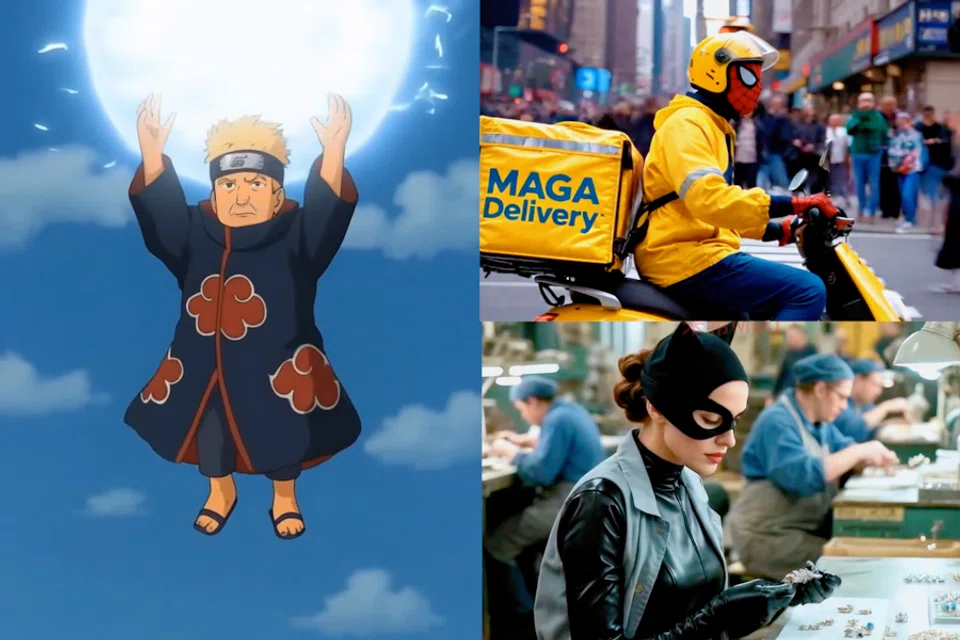[Video] Trade war, meme war: How the internet is fighting US-China tensions
As US-China tensions mount, Chinese netizens are responding with humour, satire and AI. But offline, the economic situation is no laughing matter. ThinkChina’s Yi Jina looks at how Chinese society is reacting to an increasingly uncertain global order.

As former US President Donald Trump revives calls to bring manufacturing back home, Chinese netizens have responded with a wave of sharp humour. From satirical memes imagining chaotic American factories to artificial intelligence-generated content (AIGC) clips produced by Xinhua News Agency and CGTN, the response has been swift and biting.
Beyond Trump, figures like US Vice-President JD Vance and Tesla CEO Elon Musk have also become targets of online satire. Vance, who recently spoke about “Chinese peasants”, was mocked in viral jokes about his appearance and family background. Musk was edited into a Chinese film scene, highlighting perceptions of his growing political involvement.
Of course, not everyone’s into poking fun at the situation. Some vloggers have urged caution against blind nationalism, calling for a more measured understanding of global dynamics. Others have offered more reflective comments, such as the view that the US’s push to revive manufacturing targets high-end industries, unlike the reality in China, and that the labour force required after reshoring may still come from China.
Offline, the situation is no laughing matter. Chinese exporters report delayed payments and shrinking orders, while many American businesses are also struggling with rising costs. In response, some Chinese companies are pivoting towards domestic sales or seeking alternative markets such as Russia. Meanwhile, apps like DHgate and Rednote are gaining popularity as American buyers increasingly purchase directly from Chinese manufacturers.
In a world where trade barriers are rising and certainty is shrinking, will these efforts help to weather the storm?





